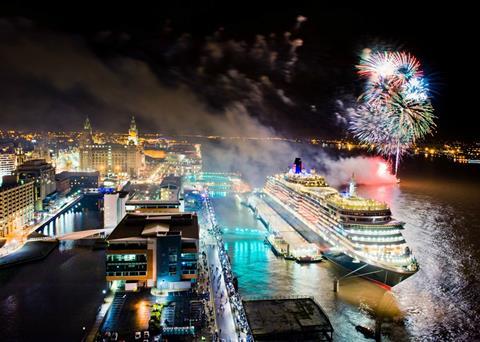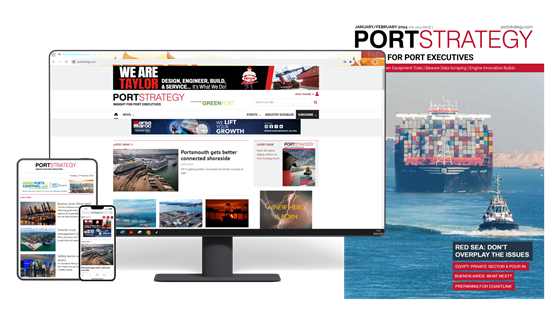The international engineering consultancy Ramboll has been appointed to lead a highly skilled technical team developing a new permanent cruise terminal facility on the UK’s River Mersey.

Ramboll will initially work on developing a detailed design on the proposed £50m facility before submitting a planning application for the former Princes Jetty, off Princes Parade, later this year.
Dave Grove, director, Ramboll said to GreenPort: “One of our top priorities is to ensure everything is designed efficiently. This means using the minimum amount of material and energy as possible to achieve a practical and fully-functioning structure.”
“At Ramboll we are committed to sustainable engineering approaches and in Liverpool this will be achieved not only through the selection of materials used, but also through the economic and social benefits that the new terminal will bring to the area. The facility is a part of the wider regeneration of the waterfront in Liverpool.”
Subject to planning approval, the Ramboll team will then project manage and assist with ongoing monitoring of construction of the new facility.
It will draw on over 20 years’ experience of working on cruise liner terminals in the UK, and over 30 years of experience in marine structure design.
Ramboll was responsible for the design of the existing floating cruise liner berth in Liverpool, which it said is one of a kind in the UK.
Mr Grove told GP that throughout new terminal’s design phase, Ramboll will ensure that a methodical and comprehensive strategy is put in place to enable the firm to consider all environmental elements of the final cruise liner facility – not just in the one area.
“This is vital in ensuring energy and emissions are saved in a meaningful way,” he said.
Interestingly, the structure is being built within the River Mersey, not on land, so there are unique environmental nuances to consider. The impact of the structure being built below the water line is a key aspect here.
Throughout this project the team will be replacing a historic timber and concrete jetty with a new structure on which to build the terminal and will be developing a process to achieve this with minimal environmental impact.
Nick Clarke, Head of Ports and Marine for Ramboll, told GP: “The team have developed specific and unique skills in the design of large floating facilities for public use and the facility in its very nature as a floating structure embodies sustainability. It has a significantly reduced impact on the river compared to other solutions as well as being able to be simply relocated if future generations wish to change the cruise logistics in many years’ time.”
He added that from its previous projects in the Mersey, Ramboll understands the importance and environmental significance of the river hydrology and geomorphology.
The design of the new terminal support structure will consider minimum disruption to the river hydrodynamics from both a construction methodology and permanent structure perspective.
“A primary driver of the project is to find a solution with minimum construction time, further minimising impact to the ecology and the surrounding residents, as well as ultimately reducing construction energy requirements,” he said said.
The multi-disciplinary design team for the new cruise terminal, has been appointed following a European wide tendering process, includes the architect Stride Treglown, global planning and property consultant JLL and landscape architect Hyland Edgar Driver.
Last year Liverpool welcomed more than 60 vessels, with 120,000 passengers and crew, but wants to capitalise on the cruise boom by creating a new passenger and baggage facility complete with passport control, lounge, café, toilets, taxi rank and vehicle pick up point.
Liverpool City Council, which is currently overseeing £13bn worth of regeneration projects, is also carrying out further maritime and infrastructure investigations, environmental impact assessments and surveys and is working closely with Peel Land and Property which has gifted the Princes Jetty, which sits within its £5.5bn Liverpool Waters scheme, to the city.
For additional information about sustainable designs of cruise terminals, join the GreenPort Cruise Conference, taking place in Amsterdam on 10 October 2017.
For further information contact the Events team on +44 1329 825335 or email congress@greenport.com.
Follow the event on Twitter @GPCongress.







